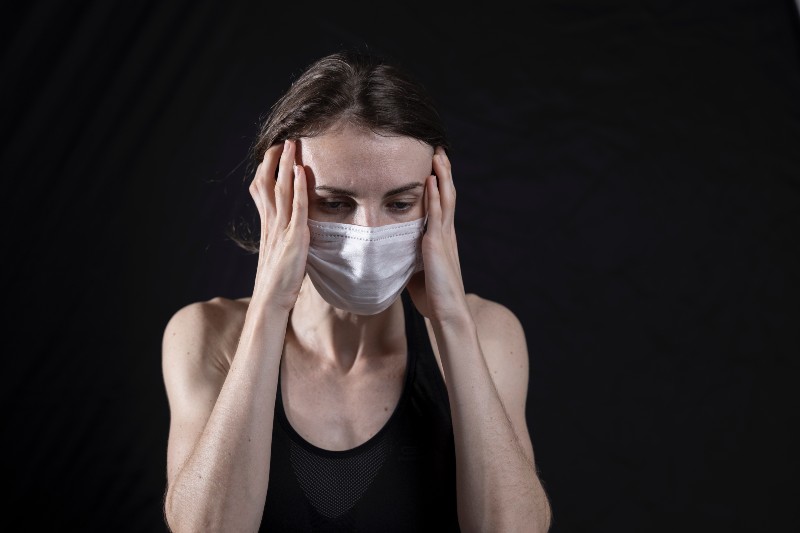No products in the cart.
How Therapy Can Help With Anxiety

Chronic anxiety can be a challenging disorder to tackle. We all get anxious on occasion; it’s all a natural part of life. The issue is when it becomes a disorder. An anxiety disorder can cause you immense suffering and make it difficult for you to live your life.
It can affect your sleep, make it harder to focus, and too much anxiety can even be bad for your body.
Luckily, there are different ways for you to handle your anxiety. There are medications for it, and you can get a diagnosis that can help you determine if you have a disorder.
Also, speaking to a therapist helps.
Let’s look at ways therapy can help you.
Cognitive Behavioral Therapy (CBT)
CBT is an effective form of therapy for many issues, including anxiety. If you have any type of anxiety disorder, you may be able to see results. CBT can help with panic disorder, different phobias, social anxiety, and more.
How does CBT work? It looks at your negative thinking patterns that lead to negative actions.
When you’re anxious, you tend to have thinking patterns that can make your life worse. For example, if you have a panic disorder, your racing thoughts over you getting another panic attack can make it more likely you do have one.
CBT helps you to challenge your thoughts. You identify which thoughts are negative and replace them with ideas that are more realistic or helpful.
For example, if you have anxiety over flying in planes, replacing your fears with accurate statistics can certainly help you.
Exposure Therapy
This form of therapy is good for fear-based anxieties.
With exposure therapy, you are gradually exposed to what you fear. Say you’re afraid of tarantulas. Exposure therapy may involve you looking at pictures of tarantulas, then videos, then one in a jar, and then you touch one.
By exposing yourself to your fears at a low level, exposure therapy may help you immensely.
Of course, the therapist doesn’t just do that.
They will also teach you relaxation techniques as you are gradually exposed to your fears. A therapist may also reel it back if you have too much reaction to a certain exposure to your worries.
Helping Yourself
Anxiety is a disorder that does require you to get help usually. However, there are some techniques you can do that can help you as well.
These include:
Breathing
Breathing exercises can help calm you down when your anxiety is high. Besides feeling relaxing, breathing enables you to focus on your breaths and not the rampaging anxiety throughout your body.
Exercising
When you exercise, you are burning stress, and it allows you to focus on the workout at hand.
Not to mention, working out can help you sleep better, which may positively affect your body.
Eating Right
You may see a positive effect on your anxiety if you decide to eat right. If you’re eating nothing but junk food, it can hurt your anxiety. However, if you are eating healthier foods, you may see a difference.
Getting Enough Sleep
Getting little sleep can fuel your anxiety, which can make it harder to catch up on sleep.
How do you break this cycle? One way is to relax an hour before bed and have proper sleep routines. In addition, taking medication for anxiety may help you to get a better night’s sleep.
Sleeping better can help you with various mental health issues, including
Seek Help
One way you can get help for your anxiety is to speak with a therapist about your problems. They can help you if you’re struggling with anxiety spells, or even panic attacks and general anxiety.
However, some forms of anxiety make it so that even leaving your home is a hassle. Driving to a therapist, worrying about someone seeing you, booking appointments- this can all be anxiety-inducing!
One way for you to get help is to try online therapy. Online therapy involves getting help from the comfort of your own home. You can talk to a therapist on your schedule as well, saving you some hassle that can flare up your anxiety. To speak to a therapist online, click the link below and get started:
https://www.betterhelp.com/advice/psychotherapy/how-effective-is-psychotherapy-for-anxiety/
AUTHOR PROFILE
 Marie Miguel has been a writing and research expert for nearly a decade, covering a variety of health-related topics. Currently, she is contributing to the expansion and growth of a free online mental health resource with BetterHelp.com. With an interest and dedication to addressing stigmas associated with mental health, she continues to specifically target subjects related to anxiety and depression.
Marie Miguel has been a writing and research expert for nearly a decade, covering a variety of health-related topics. Currently, she is contributing to the expansion and growth of a free online mental health resource with BetterHelp.com. With an interest and dedication to addressing stigmas associated with mental health, she continues to specifically target subjects related to anxiety and depression.










Leave a Reply